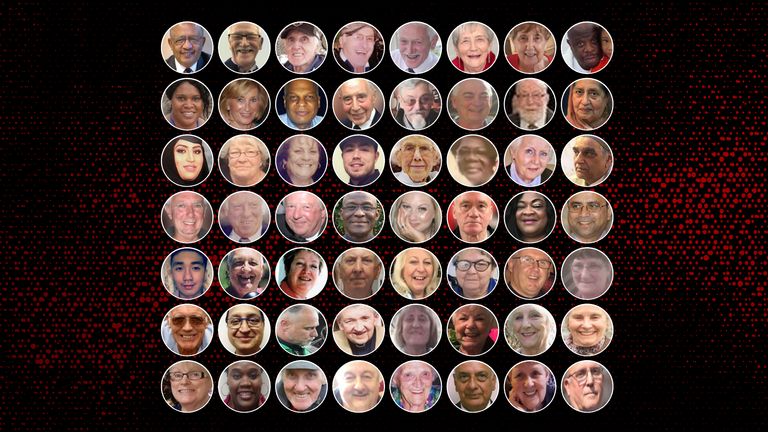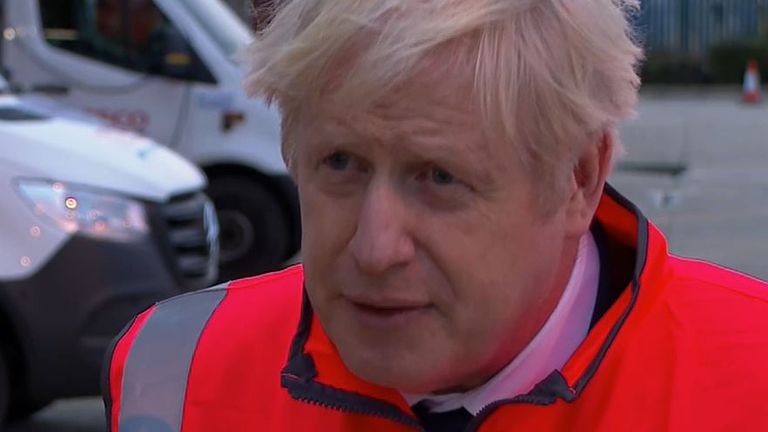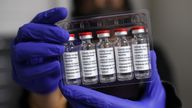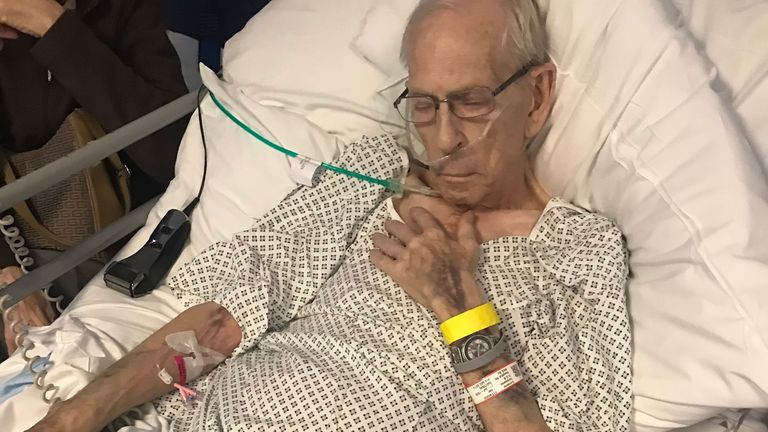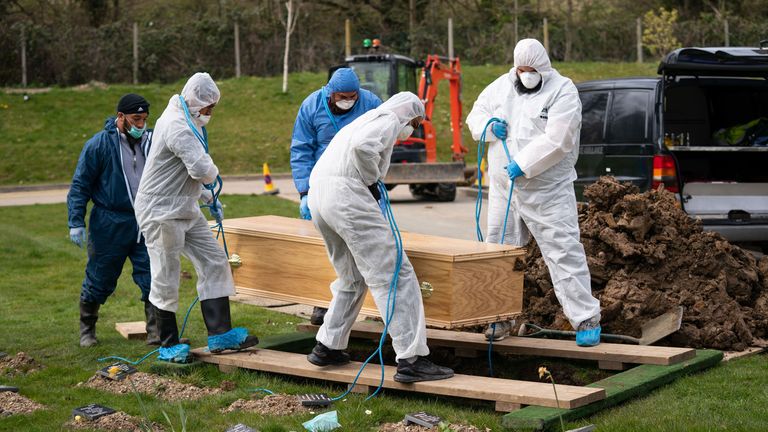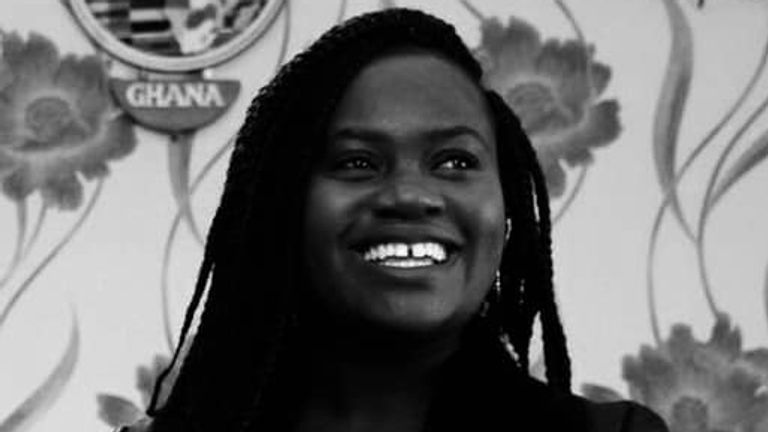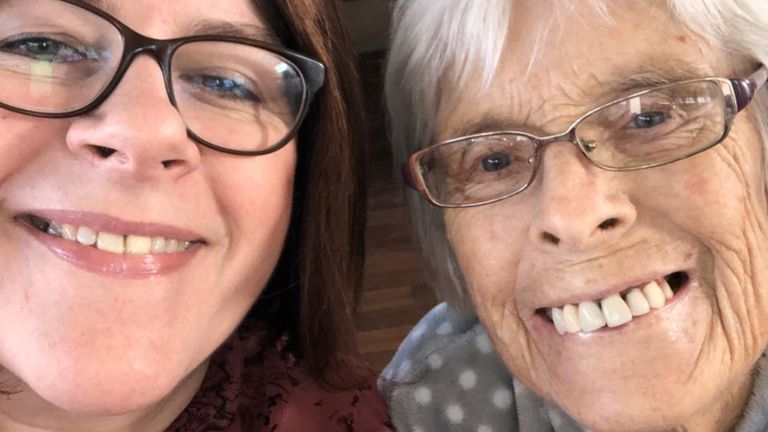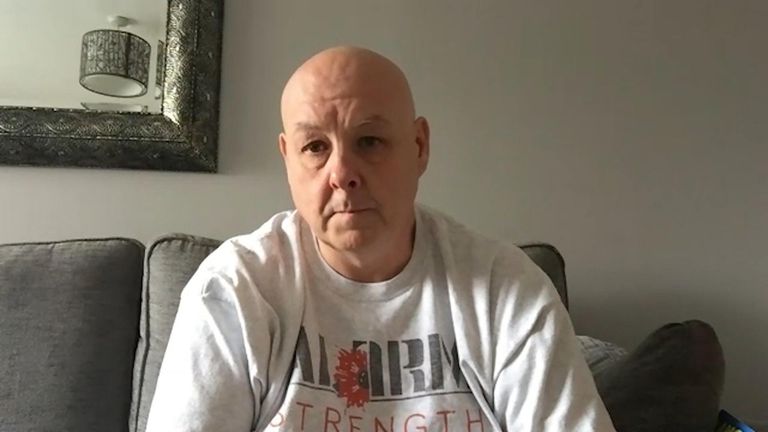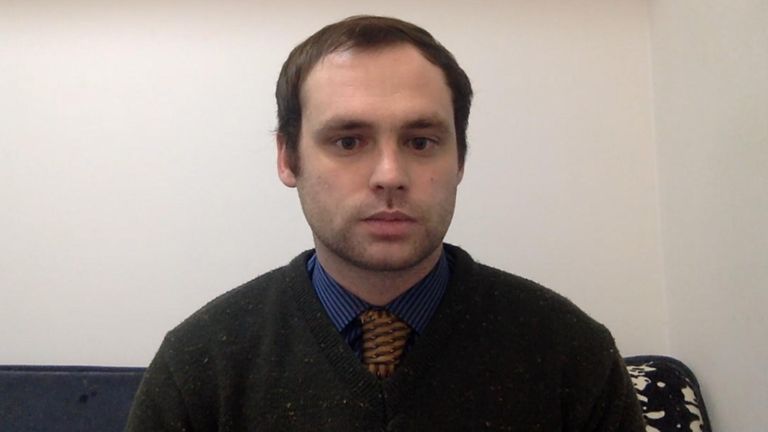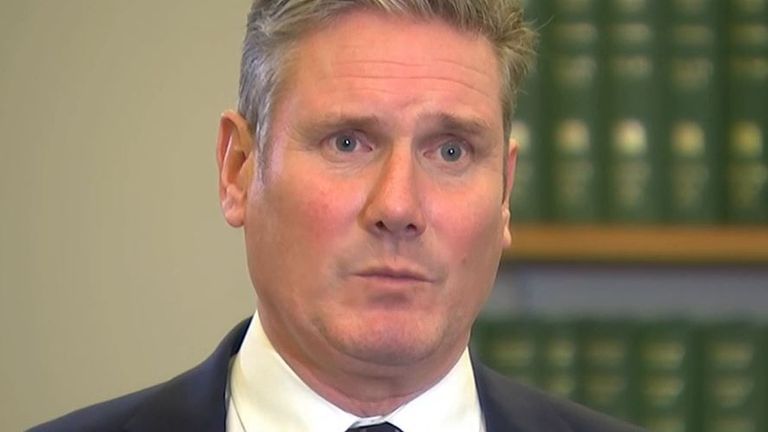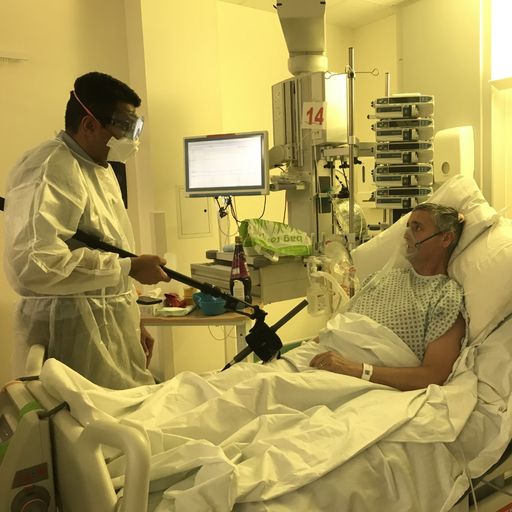COVID-19: Number of UK coronavirus deaths passes 50,000, government figures show
It marks a significant moment in the pandemic for the UK, which has been one of the countries hardest hit by the virus.
Thursday 12 November 2020 17:49, UK
The number of people who have died with coronavirus in the UK has passed 50,000, according to government figures which highlight the devastating impact of the virus on the country.
A further 595 deaths were announced on Wednesday - the highest number since 12 May - bringing the country's total to 50,365.
It marks a significant moment in the pandemic for the UK, which has been one of the countries hardest hit by COVID-19 with Europe's highest recorded number of deaths.
Live coronavirus updates from the UK and around the world
Since the first cases in the UK were confirmed in late January after the outbreak began in China, tens of thousands of British families have faced the pain of losing loved ones from the disease - and the country has endured months of restrictions on our daily lives.
The government has also faced criticism over its handling of the crisis, with care homes ravaged by the virus and questions over whether the country entered lockdown too late in March.
The tragic stories of coronavirus deaths in the UK have included the oldest known victim, 108-year-old Hilda Churchill who had survived the Spanish flu pandemic, and the youngest victim; a 13-day-old baby.
The UK's first coronavirus death is thought to have occurred on 30 January when 84-year-old Peter Attwood, from Chatham in Kent, died in hospital.
It was initially believed he died from heart failure and pneumonia before a coroner reportedly confirmed Mr Attwood had coronavirus in his lung tissue and listed his cause of death as COVID-19.
After a national lockdown was introduced in March, the country saw the heartbreaking reality of coronavirus restrictions at the funeral of 13-year-old Ismail Mohamed Abdulwahab.
The youngster, from Brixton, south London, died alone in hospital after contracting COVID-19. His family could not be there to bury him in April as they were forced to isolate after two of his siblings began displaying symptoms.
That same month, a nurse who was pregnant died with the virus - but her baby was delivered successfully.
Mary Agyeiwaa Agyapong, 28, was admitted to Luton and Dunstable University Hospital on 7 April where she worked and died five days later.
Chris Cadby was hit by a double tragedy after his wife Julianne died with coronavirus just four days after her mother Joan's death was linked to the disease.
Following their deaths, he revealed his seven-year-old son Evan asked him: "Who's next Daddy? Is it going to be you or is it going to be me?"
Connor Reed was the first known Briton to contract coronavirus last December after working at a school in Wuhan, China, where the outbreak originated.
After recovering from the virus, the 26-year-old died last month at Bangor University.
After the number of coronavirus deaths passed 50,000, Boris Johnson said "every death is a tragedy" and "we mourn everybody who's gone".
"It is a global pandemic whose effects, whose treatments, whose implications for the economy, all those have been becoming clear and clearer as the months have gone on," the prime minister added.
Labour leader Sir Keir Starmer said it was a "grim milestone", adding: "The government was slow at phase one and they haven't learned the lesson going into phase two."
He went on: "We owe it to all of the families who are grieving to get on top of the virus and head towards a vaccine and that's what the government must absolutely focus on now."
A further 22,950 cases of coronavirus were also announced on Wednesday, bringing the UK's total to 1,256,725.
Despite the government's latest death figures, in reality the UK probably passed the 50,000 deaths mark a while ago.
The government's data includes people who have died within 28 days of testing positive for COVID-19.
But separate figures published by the UK's statistics agencies - which include deaths when COVID-19 has been mentioned on the death certificate - show there have now been 65,000 fatalities involving coronavirus in the UK.
It comes after the government's chief scientific adviser, Sir Patrick Vallance, said in March that keeping the number of UK deaths below 20,000 would be a "good result" from the pandemic.
With coronavirus deaths rising again in the UK, the government hopes a vaccine can start to be rolled out in December after one in development was found to be 90% effective in preventing people from getting the virus.

